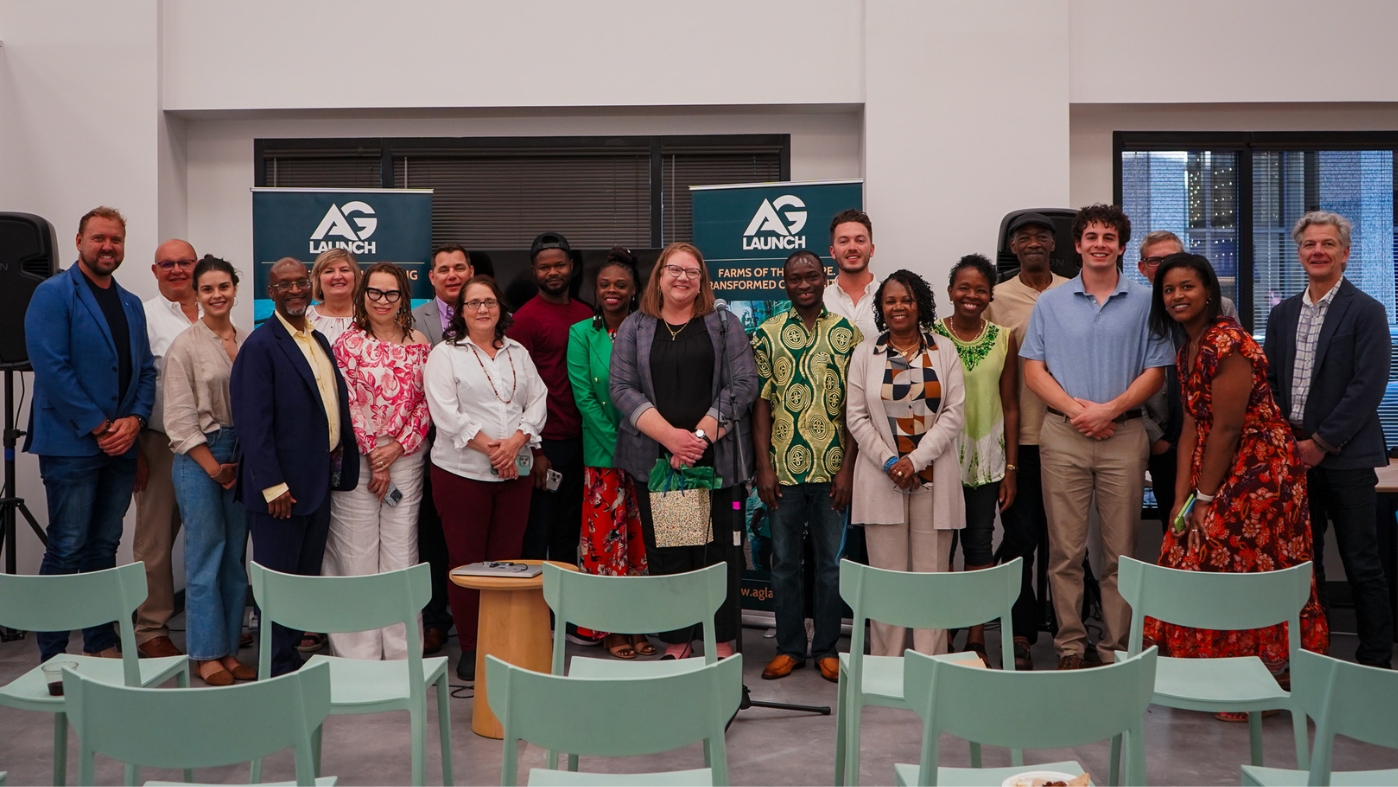
Harvesting the future: Here are nine AgLaunch companies disrupting the industry
The AgLaunch Cultivate Appalachia Bootcamp hosted in Knoxville featured nine founders with various backgrounds, and big ideas.
The 2024 Cultivate Appalachia Bootcamp came to a close on Thursday evening, as ag-tech founders pitched their businesses to a room full of industry partners and community members.
“The 2024 cohort is the largest, and most innovative that AgLaunch has ever seen,” said Katie Ellis, who helped organize the program. She is the Appalachian AgriFood Innovation Cluster Lead for AgLaunch. Additionally, the community support was greater than ever – with ecosystem partners like the Jim Biggs with the Knoxville Entrepreneur Center, Jeff Brown with The Biz Foundry, and Heath Guinn with Sync Space all playing pivotal roles in the program’s success.
“This 72-hour BootCamp is only possible because this community came together for a common cause – to support agricultural innovators,” Biggs said during the closing ceremony.
AgriWater Corp
Bianca Bailey, PhD is revolutionizing water management in the livestock industry by converting animal manure into clean water and valuable resources, streamlining operations, and enhancing farm efficiency. She has created a machine that uses a process called electrolysis to extract water from manure.
She is a member of Innovation Crossroads, and a well-connected member of the Knoxville Entrepreneurial ecosystem (see teknovation.biz article here).
Of note, Bailey mentioned during her AgLaunch pitch that she received a letter of intent from the UT Dairy Farm to allow her to place a prototype on the farm’s property for use and trial.
“We just want to say a special thank you to AgLaunch, because they have had our backs, and been in our corner since the moment we arrived in Tennessee,” Bailey said.
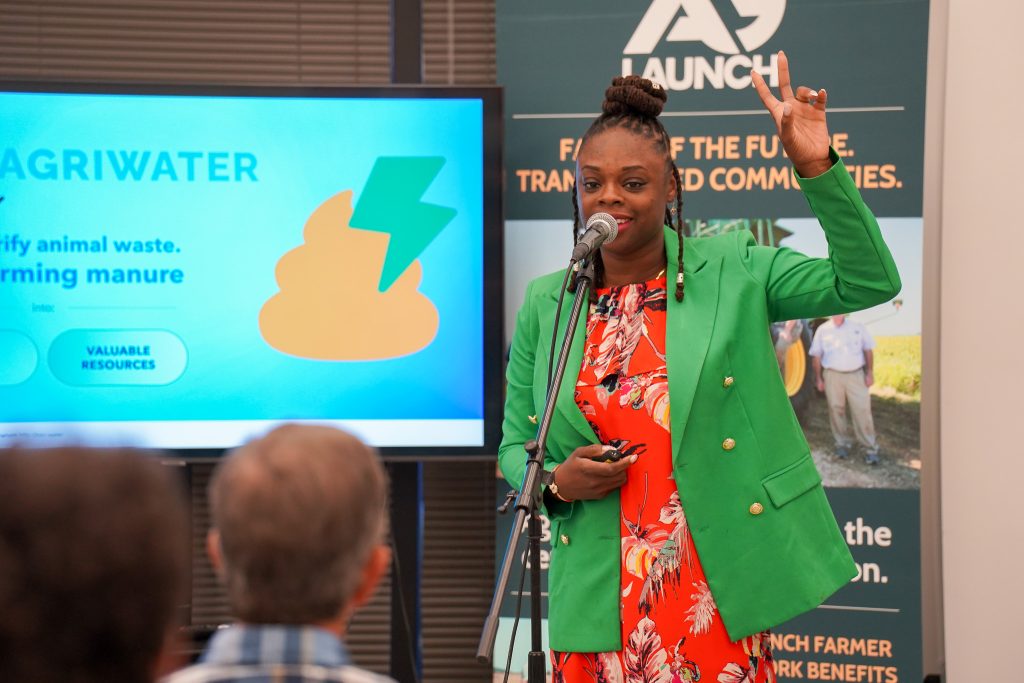
Repro- Key
Dr. Kyle McLean, who is an associate professor at the University of Tennessee, Knoxville is introducing an innovative oral synchronization product for beef producers, enabling the adoption of artificial reproductive technologies without the need for extensive handling facilities.
“If you’ve worked with cattle, you know how miserable and hard it is to do by yourself,” he said. “Especially if you have to go around and inject each cow with synchronization product. That’s why McLean’s innovation is an oral product, which can be added directly into feed, and saving farmers valuable time.
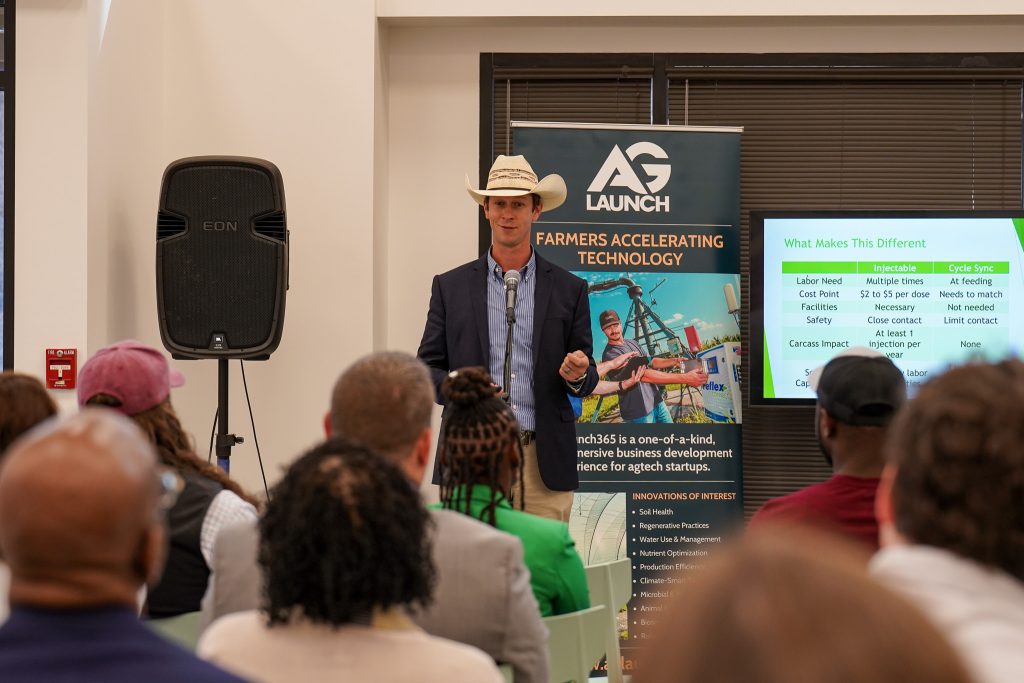
Ebony Tree Farms
Frederick Griffin and his wife Anna are empowering underserved communities through hydroponic food systems, promoting healthy, plant-based nutrition, and driving economic growth in rural areas. Their ultimate goal is to solve the problem of food insecurity – particularly in urban areas.
“We believe that a strong body and a strong mind move the community, but we can’t have those things without access to healthy food alternatives,” Griffin said.
As a Public Benefits Corporation, their idea is to bring to life cafes, catering options, specialty crops, and value-added crops to generate business, revenue, and high-paying jobs so they can focus on helping remove people from social government programs.
The couple and their founding team have raised more than a million dollars in funding to begin the process of opening a center.
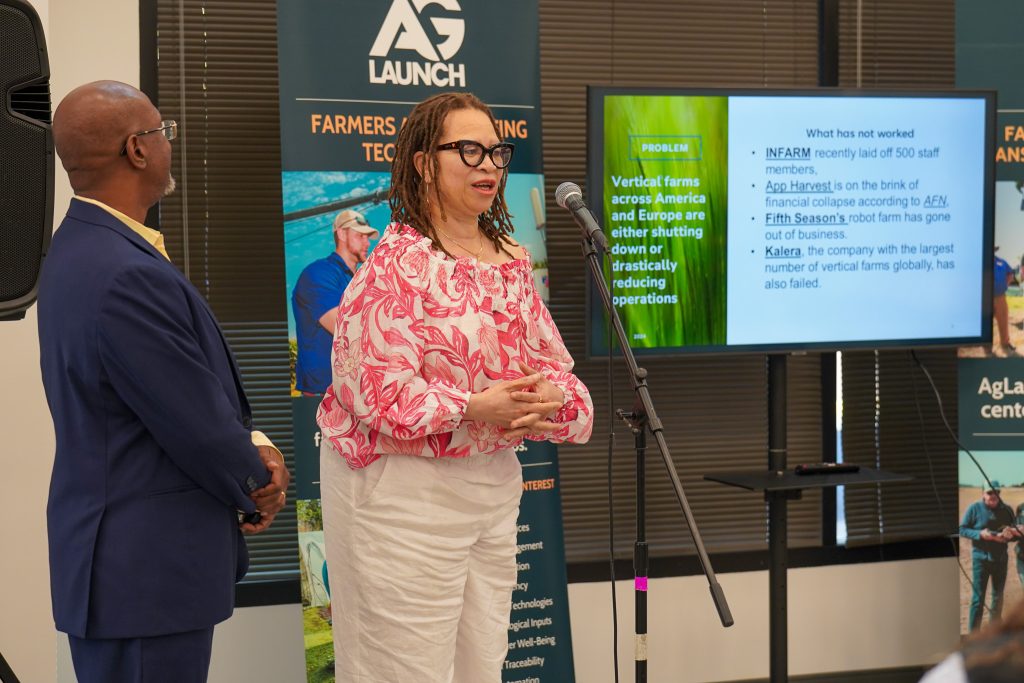
Feed4Peace
Mustapha Olawuni is bridging West African farmers with American markets for cosmetics, skincare, and nutrient-dense food products through a digital platform. He believes the produce overseas is of high value to Americans due to varying unique and medicinal properties.
His vision is to complete a pipeline connecting the two communities, and ultimately benefiting farmers in impoverished African farming towns. So far, Olawuni has done dozens of customer interviews to better understand his market fit.
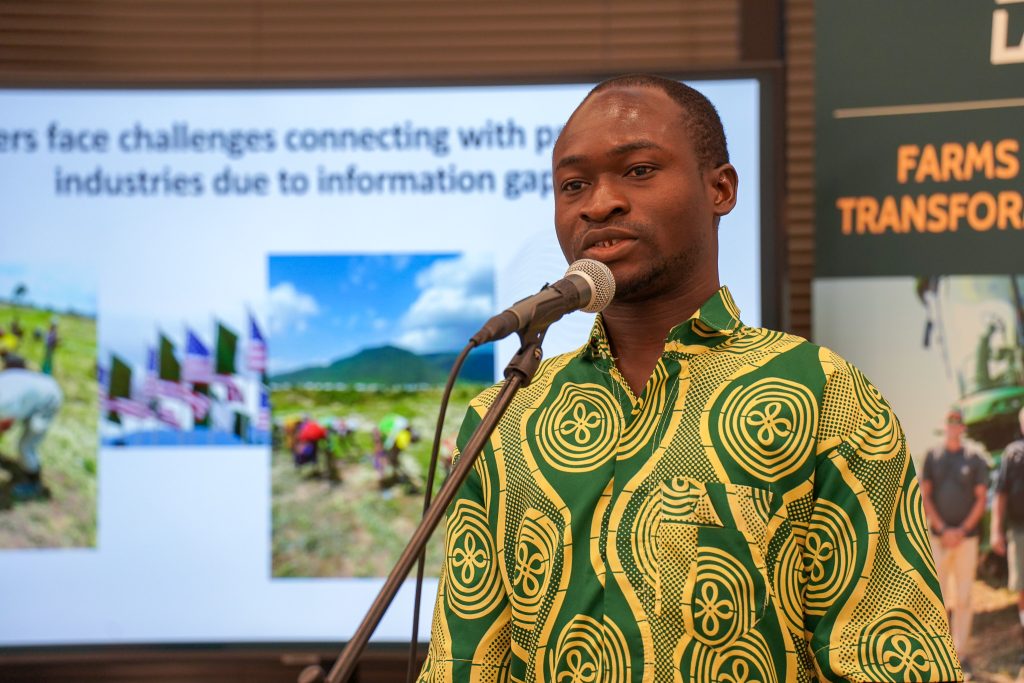
Happy Tea Company
Mike Minnis and his wife Karen are creating a local supply chain for natural dietary supplements, cultivating and distributing plants, roots, and herbs to meet growing demand. Their start-up, Happy Tea Company has created more than a dozen teas that target various diseases and health conditions.
Their market fit is within the natural alternatives community, which Minnis says is growing every year, especially as more people are becoming weary of big pharma. Although they have had several customers and clients confirm the tea works… Minnis said he has also found relief from their mixtures.
“Once I realized they were working for other people, I looked at myself. I am a Vietnam Veteran, and at the time I was on several medications. Due to the effectiveness of the tea, I don’t need to take those anymore,” Minnis said.
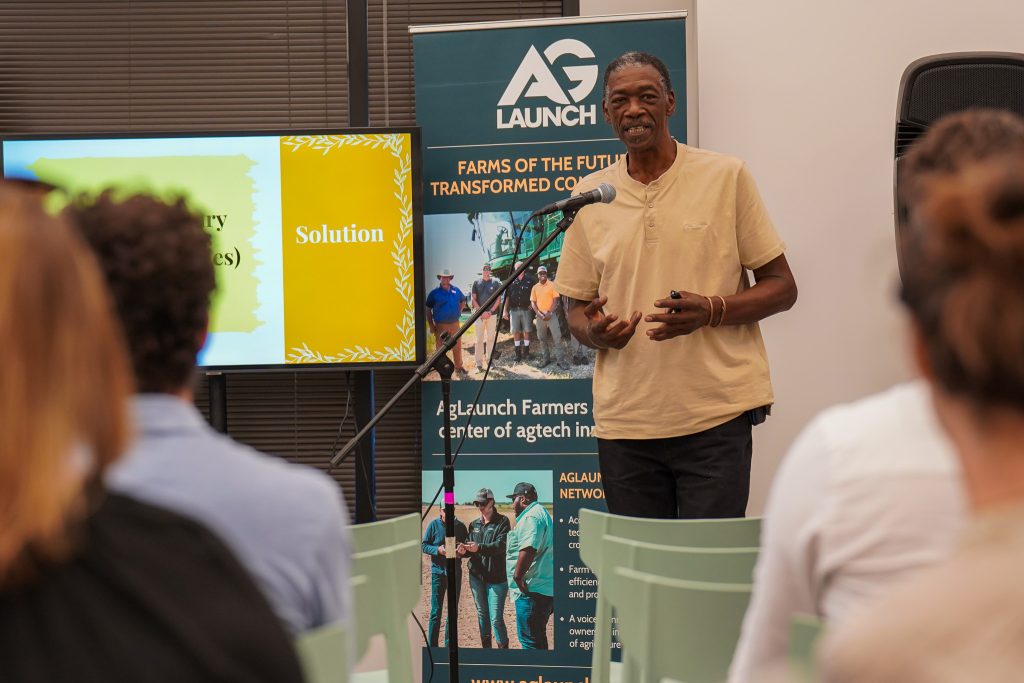
Possum
James Valencia and Silas Deane are digitizing local food chains and transactions with technology developed from the urban farm Radical Shoots, enhancing efficiency and accessibility.
They are creating an IoT hardware network with enterprise resource planning, and marketplace features to form a digital ecosystem for farmers across the US. They have already launched a pilot program in Nashville to begin tweaking the service to be as reliable and desirable as possible.
“Our goal is for Possum to become the backbone for local agriculture in the country,” Nattrass said.
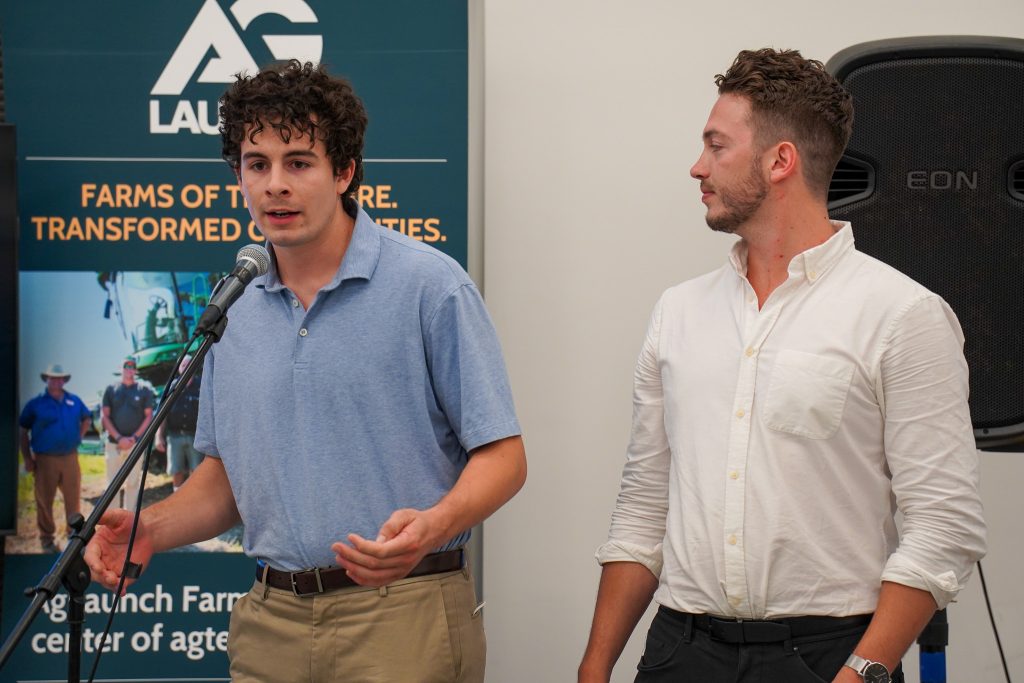
P + T Biologicals
Dr. Margaret Mmbaga, who is a professor at Tennessee State University is enhancing plant resistance to pathogens and boosting crop yield through the identification of beneficial bacterial strains. She plans to initially cater to organic farmers.
“Why am I doing this? Because pesticides are all around bad,” she said. “They are bad for your food, bad for our environment, bad for our children, and bad for our long-term health.”
She has completed a selection of biological strains that are effective and have proven efficacy against disease; however, now she needs money to help formulate commercial prototypes.
Mmbaga emphasized the market potential for her innovation is extremely large and widespread.
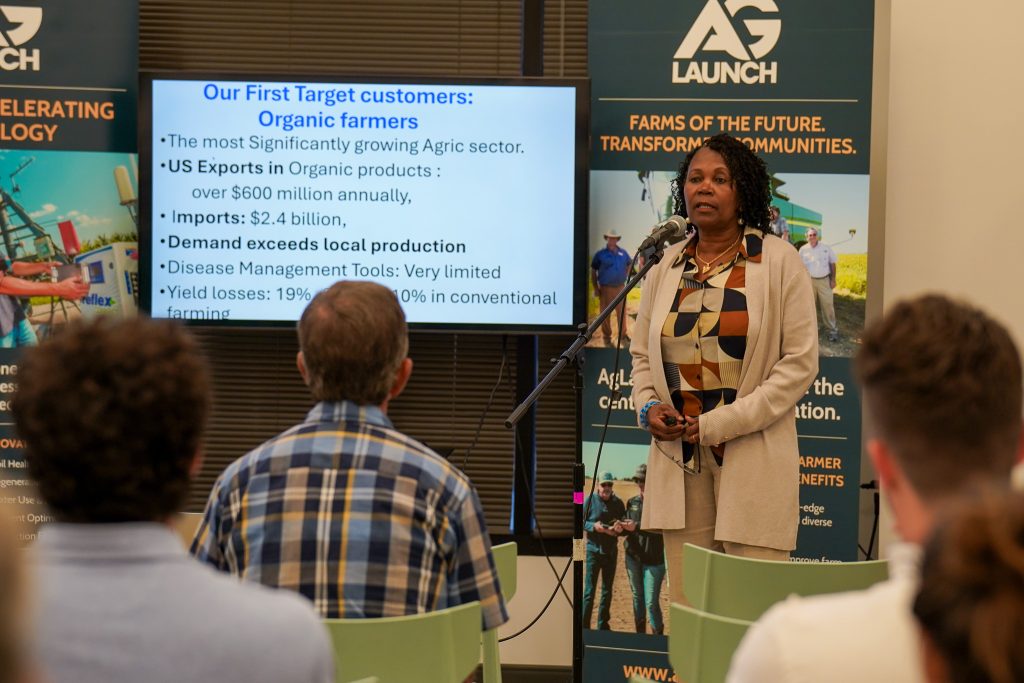
Agri-Smart Analytics
Dr. Michael Nattrass, a professor at Tennessee Tech University, is providing farmers with smart farming systems and robust infrastructure for managing Big Data from farm sensors and optimizing agricultural practices. His goal is to establish blockchain technology that will keep farmer’s data safe and non-changeable after the fact.
Nattrass said the Smart Farm market size currently sits around $5 million, though it is predicted to jump to $10 million in the coming years. He believes as the world continues to become more digital, the Smart Farm set-up will eventually become a government regulation on farmers.
“For this reason, Agri-Smart Analytics is ahead of its time,” Nattrass said. “Our goal is to establish ourselves as a business-to-government (B2G) structure, so we can help streamline data communications between farmers and government funding.”
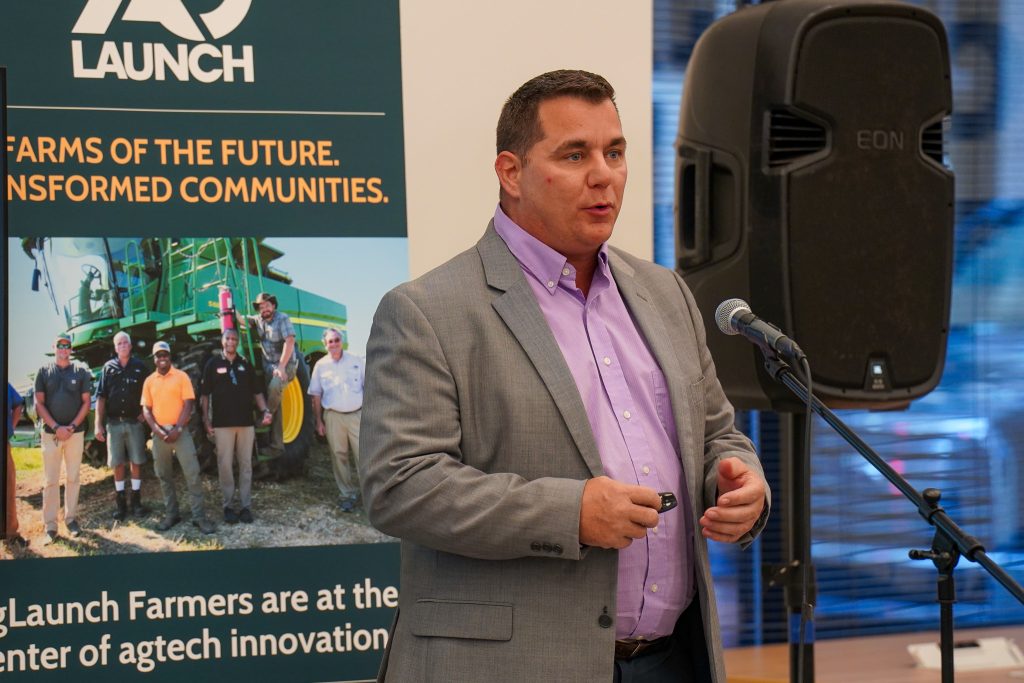
Victory View Creamery
Julie Gunter is crafting premium, locally sourced dairy products to meet the demands of discerning consumers. Her family is a fifth-generation farm family in the state of Tennessee.
Her flagship product N’ ice cream is set apart from other ice cream companies because of its genuine make-up, and storability. She said unlike most other brands, N’ ice cream has three ingredients: local farm cream, sugar, and vanilla.
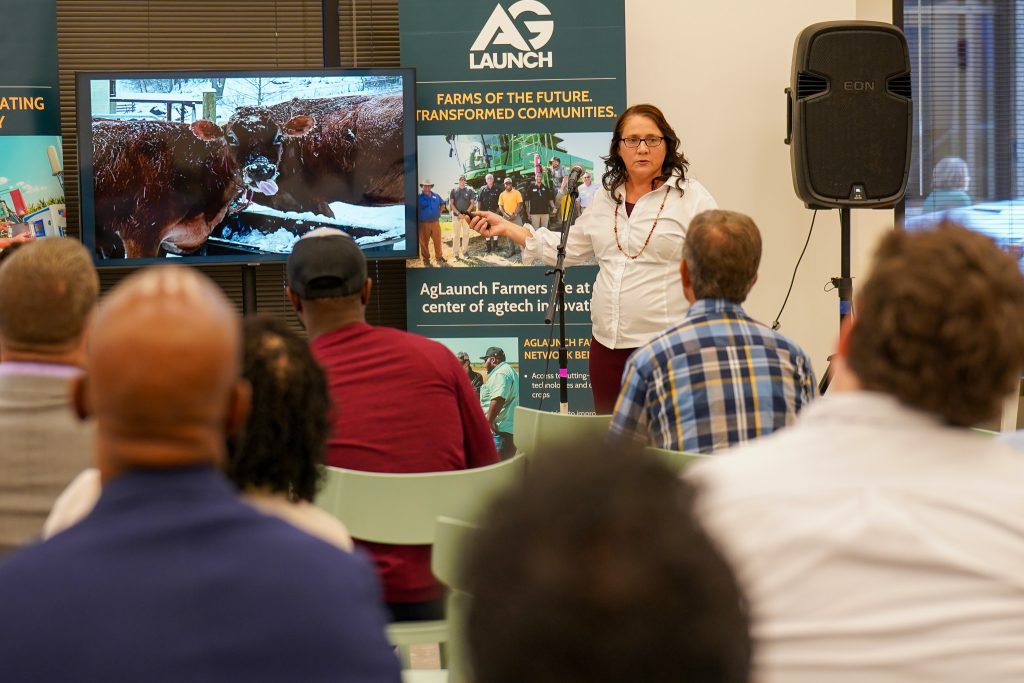
The program was designed to introduce start-up founders to AgLaunch’s Farm-Centric Innovation Model and equip them with the tools and knowledge needed to transform the agricultural sector. Over the three intensive days, participants delved into crucial topics such as business structuring, investor pitching, intellectual property protection, funding avenues, and effective networking strategies.
Like what you've read?
Forward to a friend!

